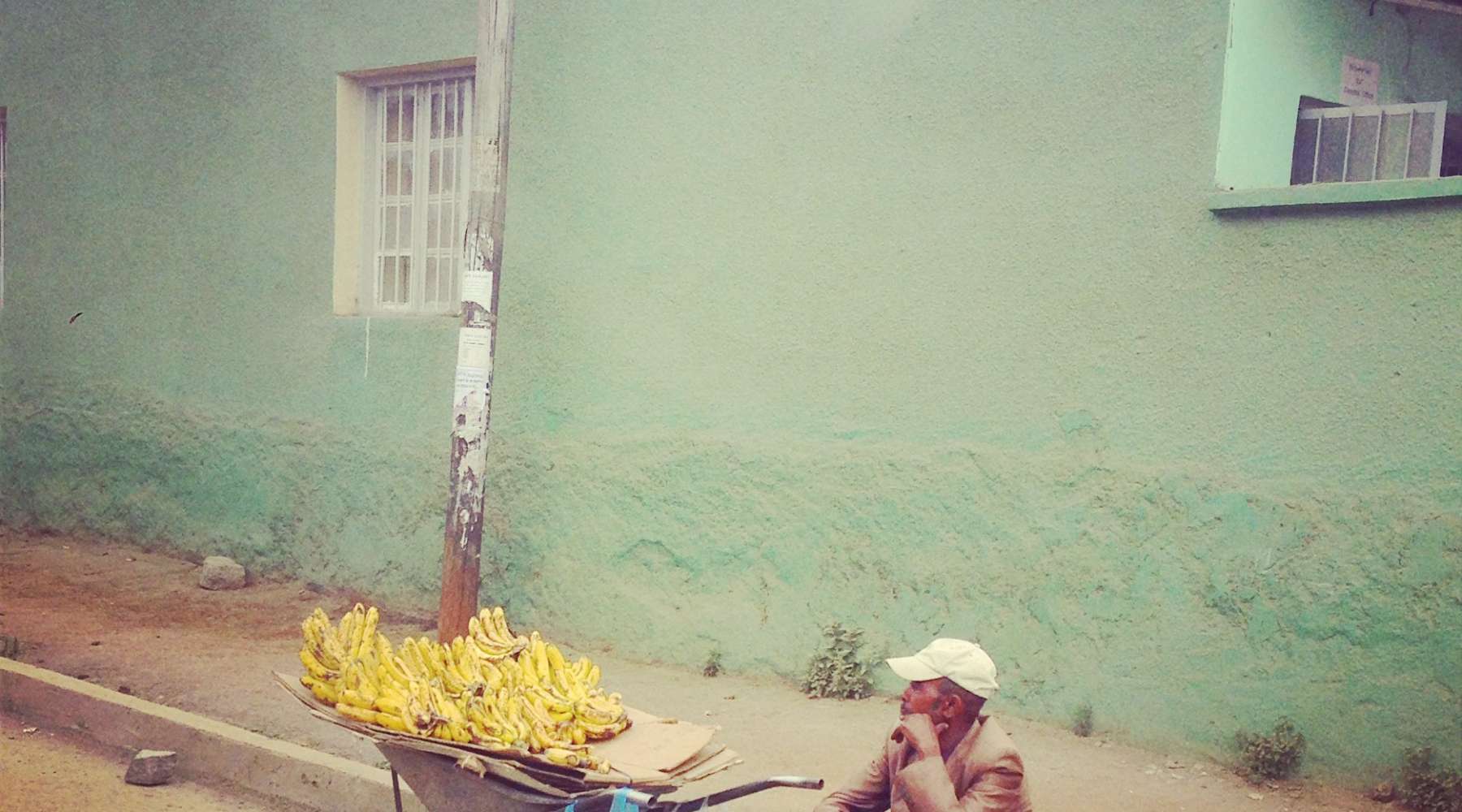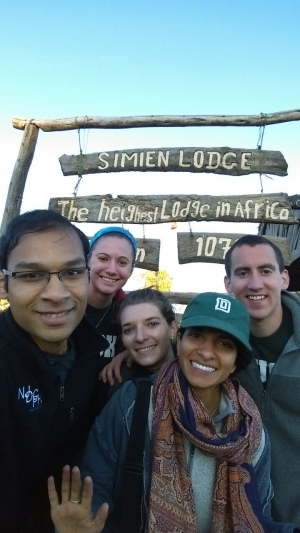
 By Sara Paccamonti T'15
By Sara Paccamonti T'15
Sara is a second-year student at Tuck. She attended the Wharton School at University of Pennsylvania for her undergraduate degree. Before Tuck, Sara worked as a management consultant for the Boston Consulting Group (BCG) in both Chicago and Sweden. After Tuck, Sara will return to BCG in the Stockholm office.
For three weeks this December, five Tuck students travelled to Addis Ababa, Ethiopia to help the Selamta Family Project design a transition model for children ready to move to independence. Selamta is a nonprofit, orphan care organization that places orphaned or abandoned children in new home settings, with a group of 6 – 10 children living together 
Over the three weeks, we interviewed over forty Selamta kids, Selamta mothers, local government officials, program directors at universities and vocational programs, and staff from the US Embassy. We ate dinners with Selamta families and learned how to prepare coffee in the traditional Ethiopian ceremony. On the weekends, we explored Addis Ababa and trekked through the Simien Mountains. One morning, we watched hundreds of Gelada baboons climb up over the cliffs to start their morning grazing. We packed quite a bit into a short few weeks!
Ethiopia is an interesting place with an incredibly rich history. As both part of the cradle of civilization and a communist republic until relatively recently, Ethiopia has a unique place in African history and culture.
In some ways, Ethiopia seems stuck in 1963. Many of the landmark buildings are perfect period pieces, with pastel exterior panels and circular windows in a starburst. One of my favorite buildings is a an early '70s office building with a curved exterior, known as the “Electricity House” for the public electric board that sat there. For the past 40 years, the government has decided how Ethiopia should advance economically. Even today, the government has a strong hand in developing chosen industries. The number of university students that can study each major is actually capped to ensure enough students go in the burgeoning STEM fields.
While the cities seem stuck in the 1960s, the countryside seems almost medieval. The vast majority of the population lives in mud houses (a timber frame filled in with a mud mixture, thatch roof if the owner is unlucky, corrugated tin if they are luckier) with no plumbing, running water, or electricity. Every family seems to own five cows, 15 goats, and a small field to grow tef, the high protein grain essential to Ethiopian cuisine. One of the most intellectually and ethically challenging facets of the trip for me was to see how Ethiopians live compared to how Americans live.
It’s hard to leave Ethiopia with a firm grasp on how you feel about the country. While the people are incredibly kind and hospitable, it’s hard not to wonder what happened to this once-thriving country. There are many theories regarding development and economic policy, but it’s difficult to be theoretical when seeing the daily challenges faced by many Ethiopians.
Ethiopia is a place that makes you really think. We had a wonderful experience exploring the country and getting to know the culture. Overall, our Tuck OnSite experience was a great chance to explore a new part of the world while helping a truly worthy cause.